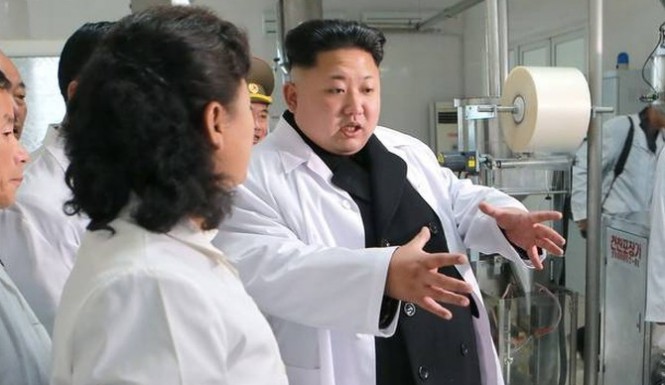The North Korean Government has expelled a BBC journalist over his reporting, media report and an official said.
Rupert Wingfield-Hayes was detained on Friday as he was about to leave the country and taken away for eight hours of questioning and made to sign a statement”, the network reported.
The British journalist, accompanied by a BBC producer and cameraman, arrived in Beijing on Monday evening after a flight from Pyongyang, the North Korean capital.
“We’re obviously very glad to be out, we’re going to go and talk to our bosses now.
“We are just relieved to be out,” Wingfield-Hayes told reporters at the airport before being driven off in a car, along with his colleagues.
Wingfield-Hayes had distorted facts and realities in his coverage, North Korean official O Ryong Il said in announcing that the reporter, who is based in Tokyo, was being expelled and would never be let in again.
“They were speaking very ill of the system, the leadership of the country,” O Ryong Il, who is secretary general of a National Peace Committee, told reporters.
Another BBC correspondent, John Sudworth, said in a broadcast report that there was disagreement, a concern over the content of Rupert’s reporting, including questioning the authenticity of a hospital.
In his report of a visit to the children’s hospital in Pyongyang, Wingfield-Hayes said the patients looked remarkably well and there was not a real doctor on duty.
“Everything we saw looks like a set-up” he said.
In another report, Wingfield-Hayes noted that his official minders were rather upset with us over trying to do a report in front of a statute of founding leader Kim Il Sung.
“They clearly felt we said stuff that was not respectful of Kim, he said in his report.
“Now, we are in trouble,” he said, adding that the BBC team had been told to delete its footage.
Sudworth said in his report Wingfield-Hayes had been prevented from leaving on Friday and taken away.
“He was separated from the rest of his team, prevented from boarding that flight, taken to a hotel and interrogated by the security bureau here in Pyongyang.
“He was later made to sign a statement and then released, eventually allowed to rejoin us here in this hotel,” Sudworth said.
A BBC spokesman said that four BBC are still remaining in the country and he expected they would be allowed to stay.
“We are very disappointed that our reporter, Wingfield-Hayes and his team have been deported from North Korea after the government took offense at material he had filed,” the spokesman said.
The eight-hour interrogation was conducted by a man, who introduced himself as the person who prosecuted Kenneth Bae, an American missionary, who had been held by the North for two years.
Bae was prosecuted for crimes against the state, said another BBC correspondent in Pyongyang, Stephen Evans.
Bae was released in November 2014.
North Korea granted visas to an unusually large group of 128 journalists from 12 countries to coincide with the Workers’ Party congress.
Their movements are closely managed and their only access to the proceedings of the congress began on Friday.
So far, it allowed about 30 groups into the venue for a brief visit, following nearly three hours of security checks.
Otherwise, they were taken to showcase sites, such as a maternity hospital, an electric cable plant and a children’s centre.
The North Korean government, which owns and operates all domestic news media organisations, maintains tight control over foreign reporters, with government minders accompanying visiting journalists as they report.
Wingfield-Hayes had been in town ahead of the congress to cover the visit of a group of Nobel laureates.
North Korea said it would strengthen self-defensive nuclear weapons capability in a decision adopted at the congress, its KCNA news agency reported on Monday, in defiance of UN resolutions.
BBC correspondent expelled from North Korea over reporting

